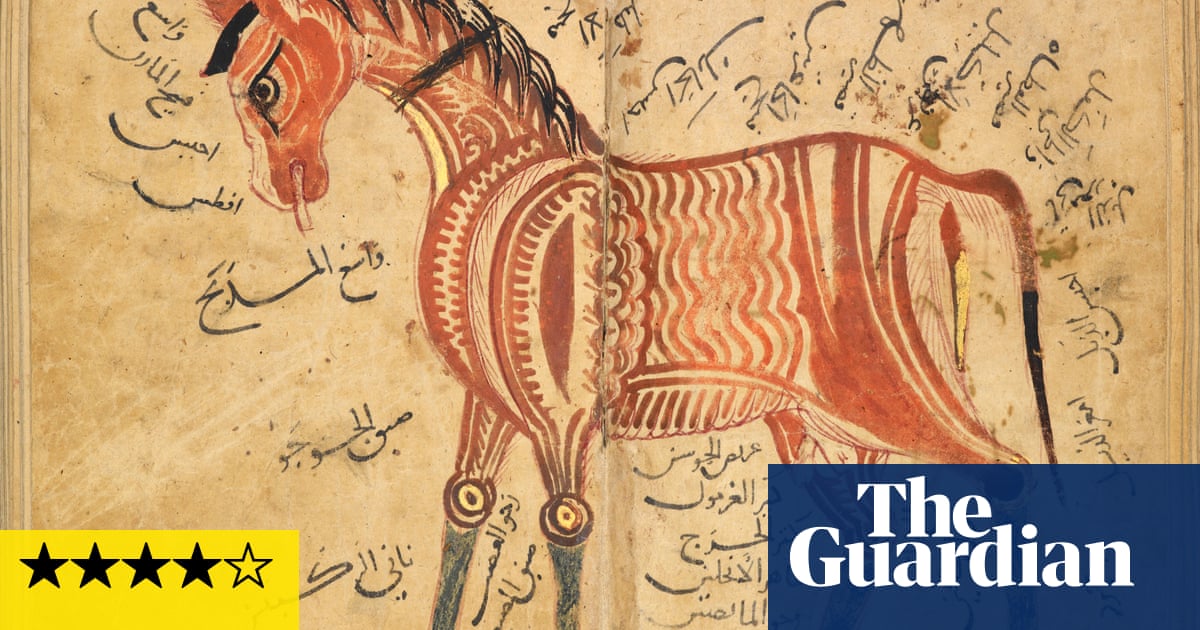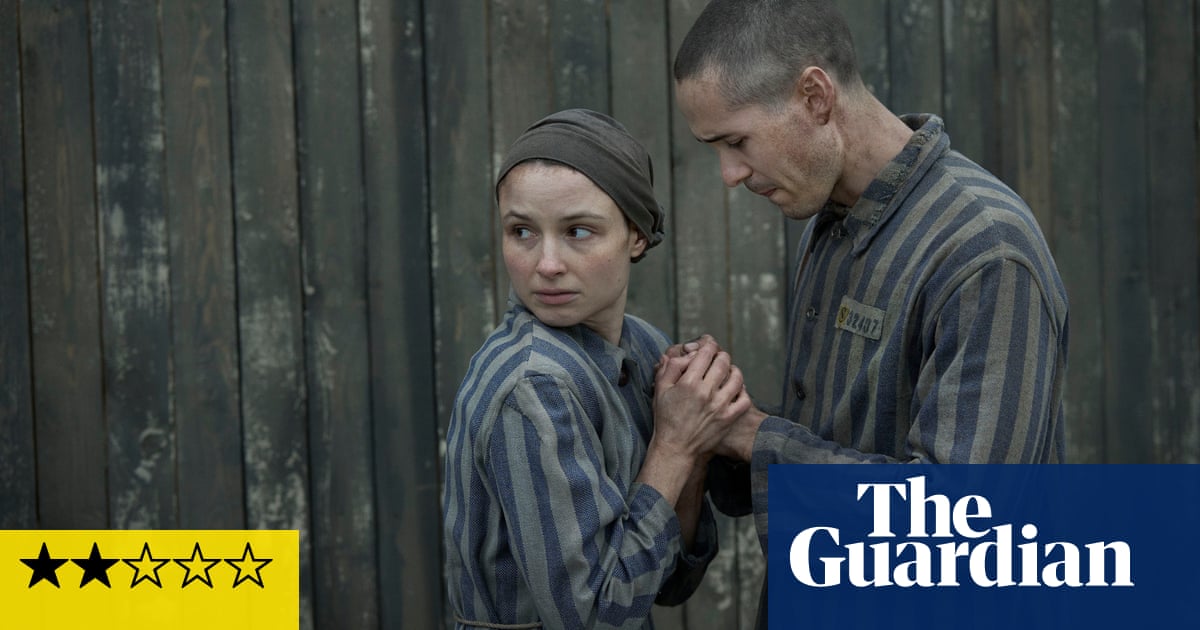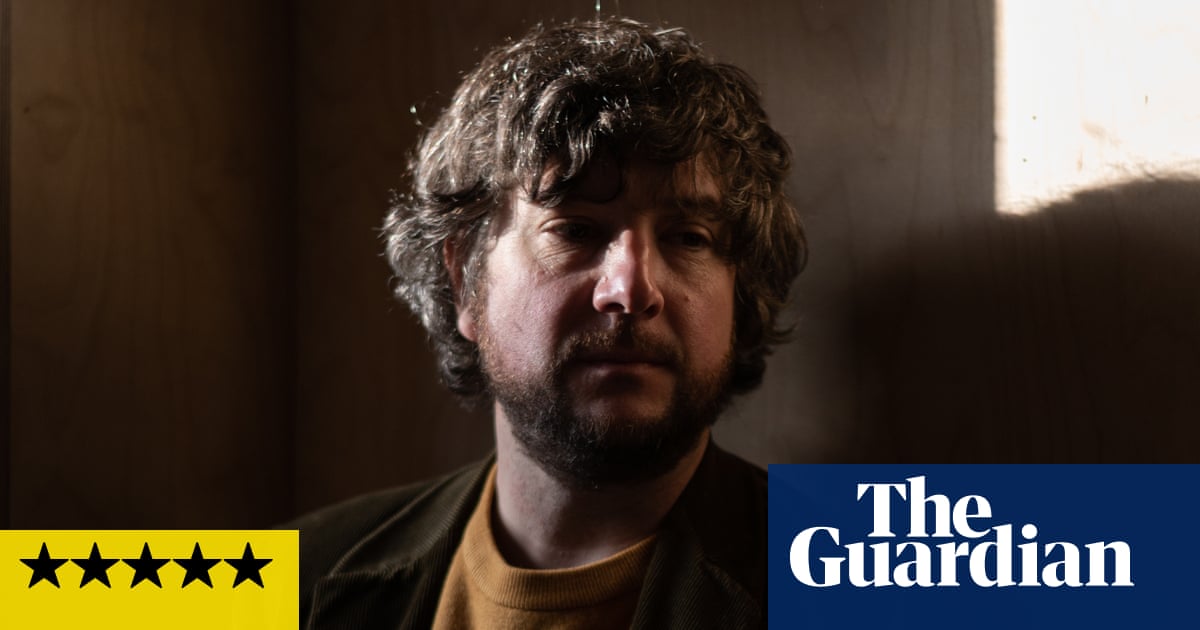
The magizoologist Newt Scamander returns in the latest of the Fantastic Beasts movies, the prequel-saga of the wizarding world in Britain, America and beyond before Harry Potter’s Hogwarts career. JK Rowling co-writes the screenplay with Steve Kloves; Potter veteran David Yates directs with a sure hand; and Eddie Redmayne is looking more eccentric and Dickensian than ever in his role, a Copperfield or even a young Mr Dick with his shock of hair, faintly unfocused gaze, unworldly bowtie and fractionally too-short trousers.
The Secrets of Dumbledore is another very amiable and lovely-looking fantasy adventure with some great production design and visual effects, especially in the New York scenes. But it’s not about “secrets” as much as new IP-franchise narrative components shuffled into the ongoing content and shuffled out again. Yet there is certainly something intriguing about the questions arising from the saga’s approach to the existing Potter timeline.
Mads Mikkelsen has been brought into the series to replace the now problematic Johnny Depp in the role of Gellert Grindelwald, the evil wizard who once had a close relationship with Albus Dumbledore himself (played by Jude Law with a twinklingly donnish manner and beard). Mikkelsen gives a subtler and more insidious performance than Depp’s, and the “pale eye” effect is more restrained. The movie takes us into the world of 1930s Europe and Weimar Berlin; Grindelwald happens to be in prison and is planning to gain absolute control of the wizarding world when he gets out, by the accepted democratic route if that is convenient. Remind you of anyone?
Newt and Grindelwald have each captured a vitally important fantastic beast that will play a key part in the voting process and now Dumbledore is directing a new crew of good guys to tackle Grindelwald’s malevolent strategy, as he prepares to grab control of the wizarding world with a mandate to pursue a hateful war against the non-magic peoples.
Jacob Kowalski (played by the excellent Dan Fogler) is the muggle – or in American, no-maj – New York baker, still poignantly in love with Queenie Goldstein (Alison Sudol) who has gone over to the Grindelian dark side for reasons still to be teased out. There is also Newt’s coolly patrician brother Theseus (Callum Turner), as competent and unfazed as a John Buchan character, and Professor Lally Hicks, stylishly played by Jessica Williams, provides the intellectual steel, wizard Yusuf Kama (William Nadylam) will further upset the applecart and Newt’s jolly-hockey-sticks assistant Bunty Broadacre (Victoria Yeates) has a bit of a non-serious crush on our hero. And as the contest begins, we shall find out more about the enigmatic Dumbledore’s personal life and his relationship with the troubled Credence (Ezra Miller).
The open secret of Dumbledore’s gay identity is explored further, along with its subsequent effect on the more homophobic older generation; and his relationship with Grindelwald is established in the opening dialogue scene, albeit with a calm, blank sort of emotional restraint. This central relationship seems to be, if not passionless exactly, then certainly a case of emotional pain and rapture being all in the past. There are some great scenes: I loved the Indiana Jones-ish sequence when Newt has to rescue his brother from a dank and horrible cave guarded by a grisly warder, played by the Austrian actor Peter Simonischek (the legendary Toni Erdmann from Maren Ade’s black comedy) and Newt and Theseus both have to do a silly hip-wiggling dance to mesmerise the horrible creatures that infest the place.
By invoking fascism and the approaching world war, the film is gesturing at something overwhelmingly evil, and yet by the end you might find the essentially non-committal storytelling style of franchise film-making, with its suspended resolutions, works against this. Then there is the question of the looming Potter world. We may or may not encounter Harry’s parents soon. We meet famous Hogwarts teachers in their youth, although if we assume that Harry Potter and the Philosopher’s Stone was happening around the end of the 20th century, we might pedantically ponder the fact that this would make key teaching staff at that time around 100 years old. Magic preserves youth, clearly.
And what of Grindelwald himself? Is he more or less important and evil than Voldemort? Well, surely Rowling has all this mapped out. It’s good-natured entertainment, though there is still something weightless and formless about the narrative.
Fantastic Beasts: The Secrets of Dumbledore is released on 7 April in Australia, 8 April in the UK, and 15 April in the US.












